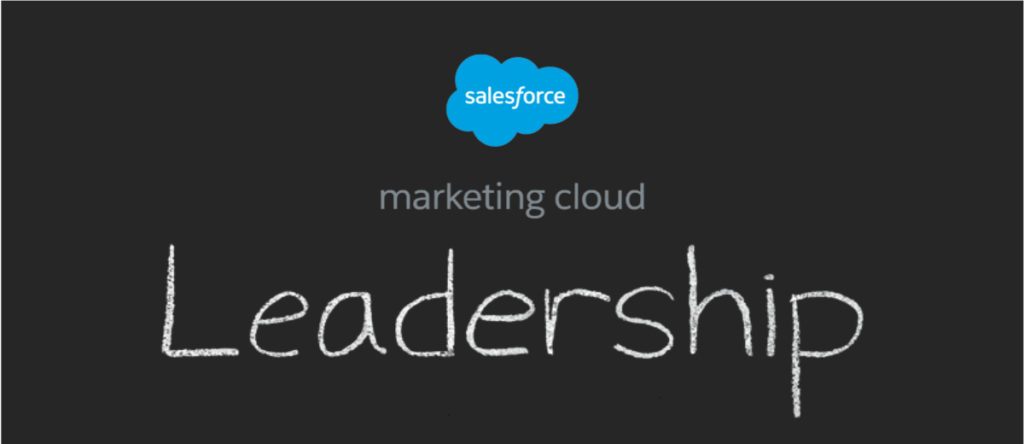
Welcome to the seventh article in my ‘Leadership in Marketing Cloud‘ series. I created this series to address a major gap in reference to and documentation around leadership inside the specific context of Marketing Cloud. When I searched through the community and official places, there was nothing really available!
Please reference here for all the articles currently available for this series.
In the last article, we took a bit of a left turn and talked about AI from a leader’s perspective. We are now going to be back to our regularly scheduled leadership topics dealing with Delegation and Enablement.
To remove yourself from the day-to-day production and help the team succeed, you need to learn delegation. One person cannot and should not ‘do it all’ If you take on more and more, it will burn you out or at the very least dilute your ability to be a leader, meaning your team will suffer. So, in order to truly enable your team, you need to be able to delegate responsibilities and work to them accordingly.
Let’s first take a look at what delegation is before we go into how to successfully use it to enable your team.

Delegation
Delegation is the cornerstone of effective leadership in Salesforce Marketing Cloud. By assigning tasks and responsibilities to your team members, you can leverage their unique skills and talents to propel your marketing efforts forward. A leader that is unable to delegate will become quickly overloaded and likely to miss things or burn out, or both and do so very quickly. Let’s start out by taking a look at some of the basics of delegation:
The Foundations of Delegation
- Time Optimization: As a leader, your time is valuable. Delegating routine tasks and operational activities allows you to concentrate on strategic decision-making and innovation.
- Skill Utilization: Every team member possesses distinct skills and expertise. Delegation empowers you to tap into these strengths, creating a well-rounded and efficient team.
- Employee Growth: Delegating responsibilities provides team members with growth opportunities, fostering their professional development and boosting their motivation.
- Increased Efficiency: Distributing tasks according to individual abilities enhances efficiency, reducing bottlenecks and optimizing workflow within your marketing processes.
One important note is that delegation of a task is not just waving a wand and making things disappear. It is about harnessing the power of your team members to have not just each individual excel and grow, but to make the team even better and stronger. Through alignment of strengths and clear instructions, you are not only helping them learn and grow, but also helping them to succeed.
The Strategy of Delegation
As with all things, there are some strategies and best practices to go along with delegation. Please see below list for some great example strategies:
- Clear Communication: When delegating tasks, articulate your expectations clearly. Define the scope, objectives, and desired outcomes, leaving no room for ambiguity.
- Match Tasks to Skills: Assign tasks based on team members’ strengths and interests. Aligning responsibilities with their expertise enhances job satisfaction and performance.
- Set Milestones and Deadlines: Break down tasks into manageable milestones and establish realistic deadlines. Regular check-ins ensure progress is on track and allow for course correction if needed.
- Provide Resources: Ensure your team has the necessary tools, access to relevant data, and training to successfully complete their assigned tasks.
- Encourage Autonomy: Empower your team to make decisions within their delegated roles. This instills a sense of ownership and accountability, fostering a proactive and responsible team culture.
With these strategies in mind, we can begin getting together a strong gameplan to ensure the next task is suitably prepared to be delegated to your team. But…what if I know HOW to delegate and WHY to delegate…but I just can’t?
Get Over Yourself…
The number one part of delegation that is needed is to remove yourself from the equation. If you start thinking “I would do it so much better” or “If I did it, I could do it so much faster” or similar, you are not delegating, you are competing and that is not fair for your team. At times, yes you will need to take things on instead of delegating out for either of those reasons, but they should not be the first thoughts when delegating. You should come out with a ‘delegation first’ mindset.
What is a ‘delegation first’ mindset? It is where when a task comes in, before you even think about anything involving solutioning it, you instead think “Ok, who on the team do I think could best handle solutioning and completing this task”. The second you begin to form your own opinions on direction and resolution of the issue, you are now inserting yourself into the equation instead of passing it off to your team to handle. You are now the leader and you are now responsible for the whole team, not just yourself. You cannot take all the work, or the team will fail.
Everyone knows you are great, that is how you became a leader, you no longer need to show your skill in the individual contributions. Instead, you now need to focus on the planning, guiding and operational aspects of the business. Some of the best leaders I ever worked with never even touched a single bit of code or even worked in the tool. Not because they could not (some were actually amazing at coding) but because they knew their work in other areas was more valuable to the team than stepping in to work on the code.

Team Enablement
Delegation goes hand in hand with enablement. Effective enablement involves equipping your team with the knowledge, training, and resources required to excel in their roles. Here’s why enablement matters:
The Foundations of Enablement
In this landscape, enablement isn’t a mere onboarding checklist; it’s the strategic blueprint for unleashing the full potential of your marketing team. Foundations of enablement become the cornerstone upon which your marketing team is built, but it is not just about teaching, it is about empowering your team with knowledge and tools. The journey from novice to master should include a leader helping to guide and coach. For those who are going to take on this role, let’s take a look at some best practice considerations around effective enablement.
Best Practices for Effective Enablement
- Continuous Learning: Foster a culture of continuous learning by offering regular training sessions, workshops, and access to relevant online resources.
- Tailored Training: Provide personalized training based on team members’ roles and skill levels. This ensures that everyone receives the specific knowledge they need to excel.
- Feedback and Support: Encourage open communication and provide constructive feedback. Address questions and concerns promptly to facilitate a smooth learning experience.
- Hands-On Experience: Hands-on practice is invaluable. Allow your team to experiment with Salesforce Marketing Cloud features in a controlled environment to build confidence and proficiency.
- Certification Opportunities: Support your team members in obtaining relevant Salesforce certifications. These certifications validate their expertise and contribute to your team’s overall credibility.
In Conclusion
In the realm of Salesforce Marketing Cloud leadership, delegation and enablement are essential tools that can propel your team’s success and amplify your organization’s marketing efforts. By mastering the art of delegation, you optimize your team’s efficiency and tap into their unique skills. Simultaneously, effective enablement equips your team with the knowledge and resources they need to excel, fostering innovation, confidence, and adaptability. As a leader, embracing delegation and enablement as core principles will not only enhance your team’s performance but also solidify your role as a driving force in the ever-evolving landscape of Salesforce Marketing Cloud.
Thanks for reading and see you in the next one!